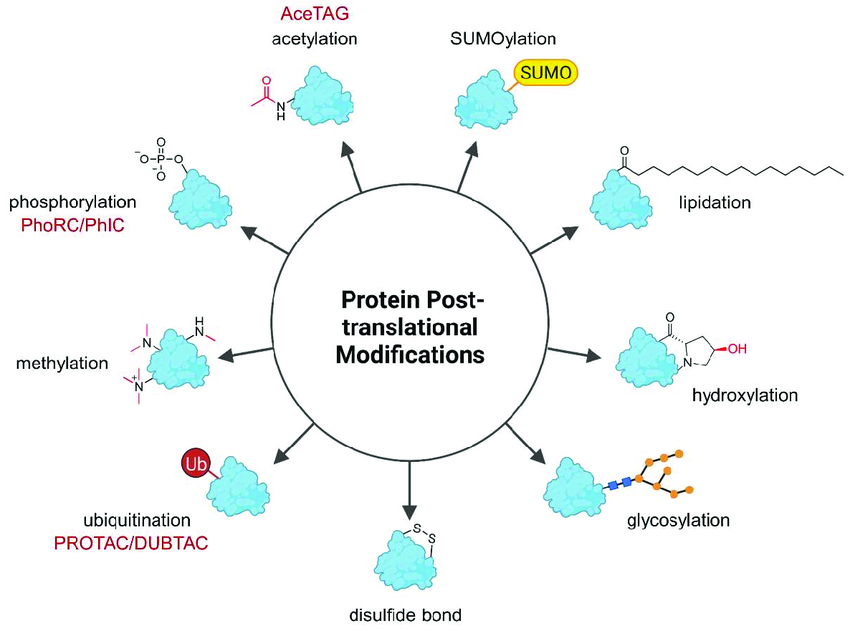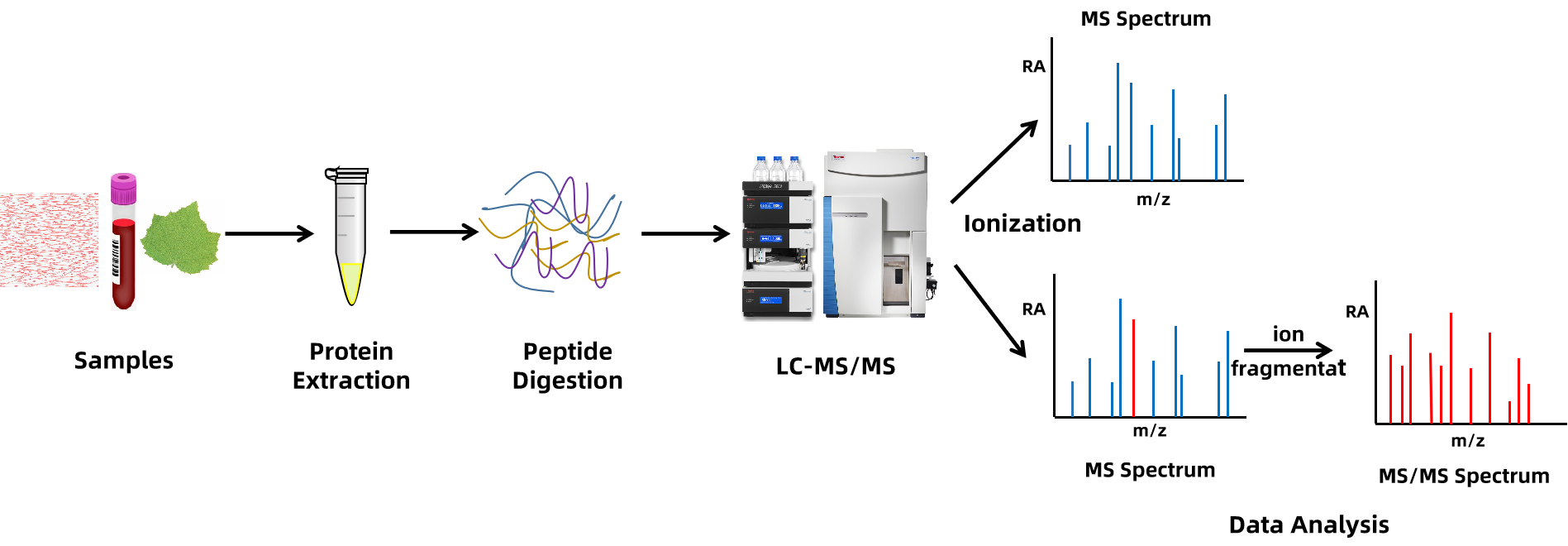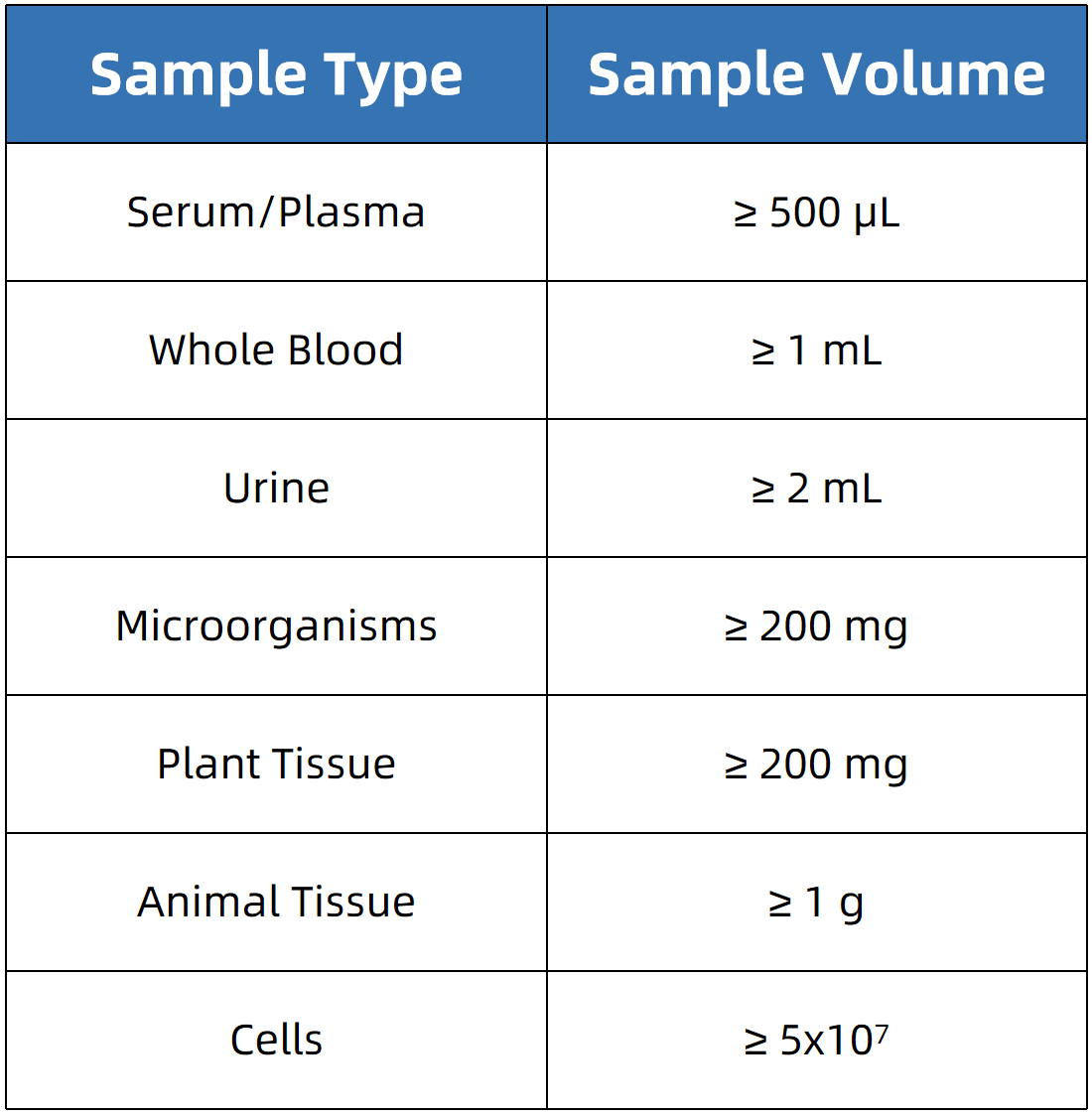PTMs Identification
- High Sensitivity and Precision: HPLC-MS/MS provides highly sensitive and accurate measurements, detecting low-abundance PTMs.
- Diverse and Broad Applicability: Capable of detecting various PTMs, including phosphorylation, acetylation, methylation, ubiquitination, glycosylation, and more, suitable for a wide range of biological samples.
- Efficient and Rapid: Optimized sample preparation and fast analysis ensure quick and efficient processing.
- Accurate and Reliable Data: Ensures high reproducibility and low error rates, supporting both research and clinical applications, providing reliable and specific results.
PTMs (Post-translational modifications) are chemical changes that occur after protein synthesis, playing a crucial role in regulating protein functions. Common PTMs include phosphorylation, acetylation, methylation, ubiquitination, and glycosylation. These modifications can alter the physicochemical properties of proteins, affecting their activity, stability, localization, and interactions. PTMs are vital in cellular signaling, gene expression regulation, cell cycle control, and metabolic regulation. Moreover, abnormal PTMs are closely linked to diseases such as cancer, diabetes, neurodegenerative disorders, and cardiovascular diseases. Given the importance of PTMs in biological processes and disease mechanisms, accurate identification and analysis of these modifications are essential for scientific research, drug development, and clinical diagnostics.

Laboratory, C. R. et al. Molecules. 2023.
Figure 1. Common Types of Protein PTMs
MtoZ Biolabs utilizes high performance liquid chromatography-tandem mass spectrometry (HPLC-MS/MS) for the precise identification and analysis of PTMs. This advanced technology combines efficient HPLC separation with sensitive MS/MS detection, ensuring accurate identification and quantification of various PTMs in complex biological samples.
Analysis Workflow

Services at MtoZ Biolabs
Phospho Proteomics
Acetyl Proteomics
Ubiquitin Proteomics
Glyco Proteomics
Disulfide Bond Analysis
Histone Modification Analysis
Service Advantages
Sample Submission Requirements

For detailed sample submission instructions, please consult our technical team.
Applications
Basic Research: Identify and analyze PTMs to study their roles in cellular signaling, gene expression regulation, and protein interactions.
Disease Research: Analyze PTMs associated with cancer, neurodegenerative diseases, cardiovascular diseases, and more to explore their roles in disease mechanisms.
Drug Development: Evaluate the impact of drugs on specific PTMs, supporting new drug discovery and development.
Clinical Diagnostics: Utilize PTMs as biomarkers to develop new diagnostic tools and methods, improving the accuracy and early detection of diseases.
How to order?







